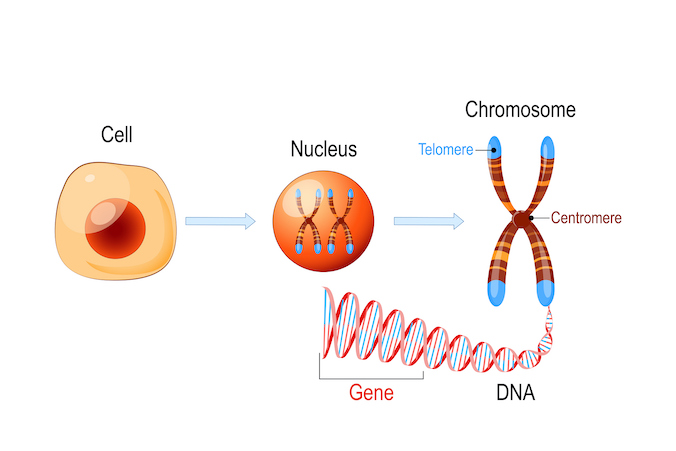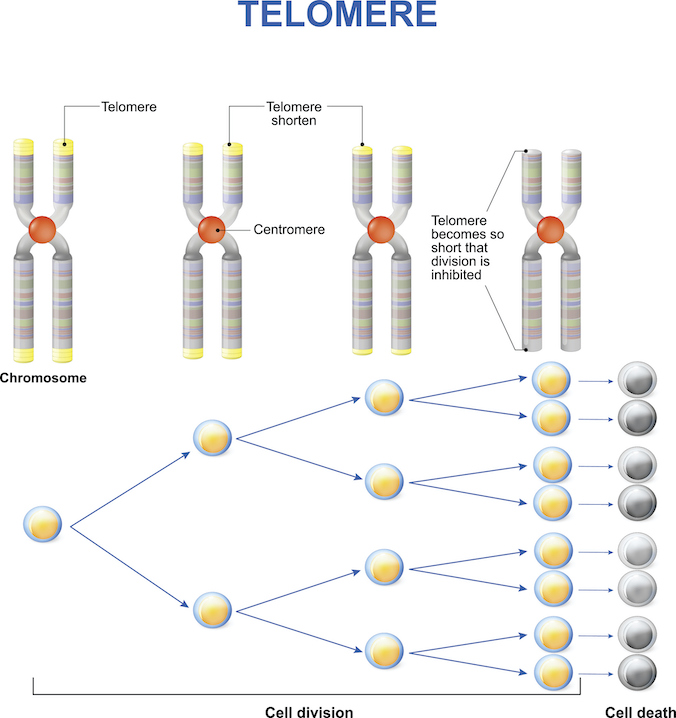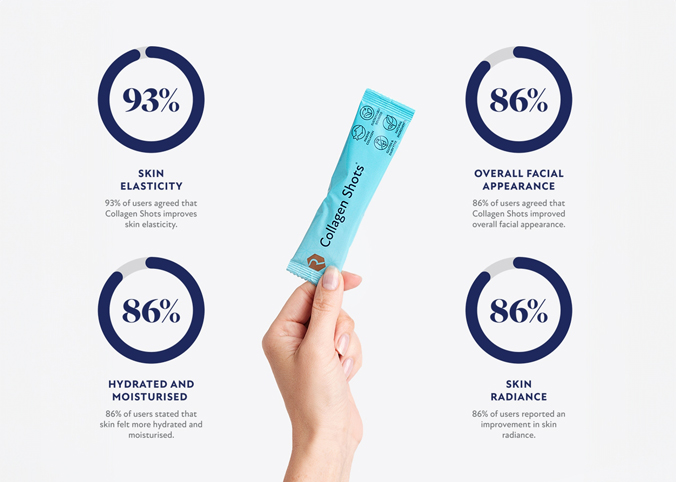What are telomeres?

Telomeres are like the protective caps on the ends of shoelaces, but for our chromosomes. They are repetitive sequences of DNA formed by short patterns at the tips of our chromosomes, wrapped in specialised proteins, serving as a buffer to shield the essential genetic information within. Formed by short patterns of DNA and wrapped in specialised proteins, they typically break down as we age.
What do Telomeres do?
Telomeres play a vital role in maintaining the integrity of our genetic information during cell division. Telomeres wear down both as we age and through cell division; until they reach a critically short length and can no longer effectively protect the chromosomes. As telomeres become less functional we can become more vulnerable to diseases associated with ageing such as cancer, diabetes, cardiovascular disease and a weakened immune system. However, all is not lost as the body creates an enzyme called telomerase which can replenish DNA at the ends of the chromosomes to help to reduce the shortening.

How can you increase the longevity of Telomeres?
Maintaining healthy telomeres is a key focus for researchers and those interested in longevity. However, rather than just focussing on lifespan, we should also consider our health span. Health span refers to the number of years we remain healthy, active, and free from disease. While the natural shortening of telomeres is inevitable, you can promote good telomere health through:
1) Lifestyle Choices : Eating a balanced diet, staying physically active, and managing stress are all essential for telomere maintenance.
2) Adequate Sleep : Quality sleep is crucial for overall healthand is believed to positively contribute to longer telomeres.
3) Avoid Smoking & Excessive Drinking : These habits are associated with telomere shortening.
4) Maintain a Healthy Weight : Obesity is widely linked to shorter telomeres.
5) Manage Stress : High levels of stress, especially over sustained periods of time can shorten telomeres.
Following these simple tips will help you to change your telomere health positively within just a few months. However, if you take on these points long-term they will help to protect you from diseases associated with ageing.

How are Telomeres linked to Biohacking?
Biohacking, the practice of making changes to one's lifestyle and biology to enhance performance and extend life, has shown a growing interest in telomeres. Biohackers seek to optimise their health and longevity, often employing strategies such as those mentioned above. Extensive research into Telomere lengthening therapies is being carried out and if effective, could become a crucial component to the concept of biohacking; as the researchers seek to find new ways to slow down the ageing process and extend both lifespan and health span. Understanding telomeres and their role in the ageing process is a fascinating area of scientific research. While we can’t entirely stop the natural shortening of telomeres as we age, there are ways to support their health and potentially extend both our lifespan and health span.






